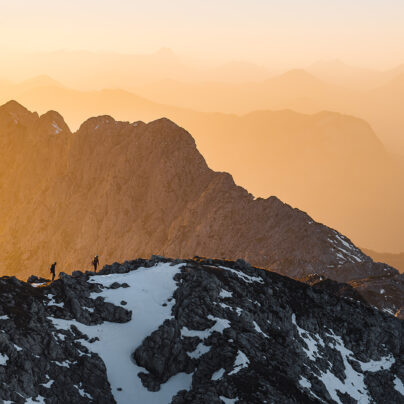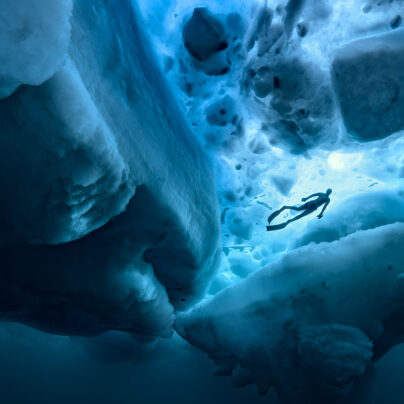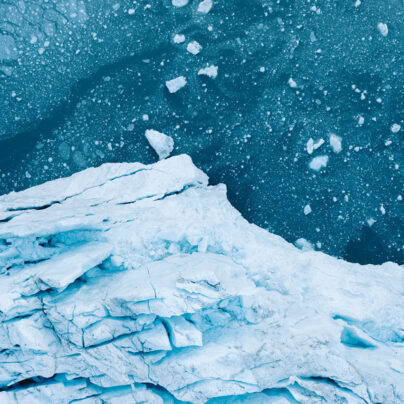An Interview With Simon Reeve
Interview by Orla O'Muiri
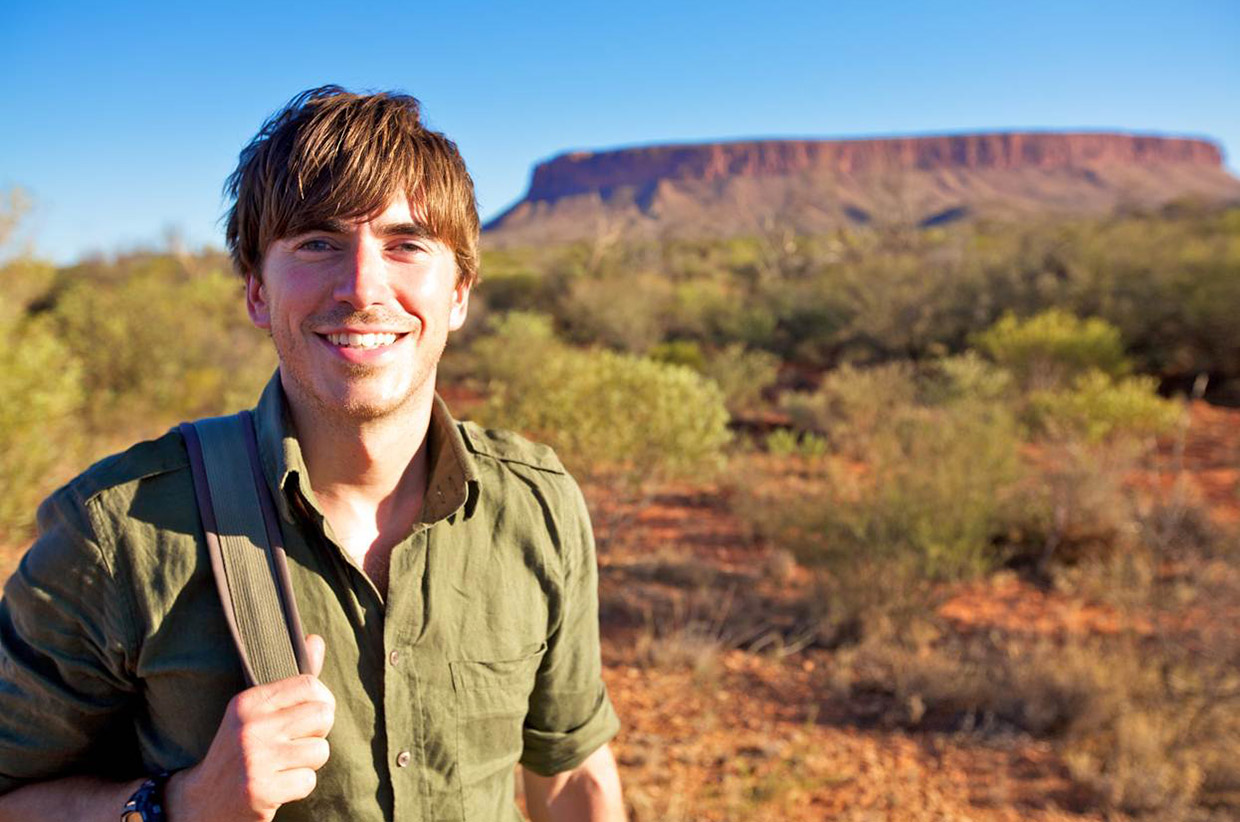
Over the last ten years, author, adventurer and TV presenter Simon Reeve has travelled the world with a camera in tow to record his extraordinary experiences for shows such as Equator, Tropic of Cancer, Tropic of Capricorn and Indian Ocean and now his latest adventure ‘Australia’, is showing in the UK on BBC 2. We spoke to Simon about his past, current and future adventures.
Sidetracked: Hi Simon, thanks so much for taking the time to talk with us. Author, adventurer and presenter: which do you think best represents you?
Simon Reeve: An adventurer would be one of the descriptions I might use if I was feeling really poncey along with author. I like calling myself an author because I wrote a book and I’ll be trading off that for probably the rest of my life. Also now, probably my most important title is dad and that’s the hardest one to live up to.
So tell us a little more about your book, and how did you go from writing to presenting?
I really don’t know how that happened to be honest. It’s really bizarre. I wrote a book on al-qada that came out in 1998 which warned of a new era of terrorism and nobody took any notice whatsoever and then 9-11 happened and it became a best seller, I went on the telly to talk about it quite a lot and that lead to discussions with the BBC about making TV programs for them. I had my own hair and teeth and I had written this book that had given me some experience and legitimacy and so I set off on a journey for them around central Asia which was interesting. It was an area in which I was really interested in and I thought BBC viewers might like to learn a little bit more about it and so that was my first TV gig. That was around Kazakhstan, Kyrgyzstan, Tajikistan and Uzbekistan for a series brilliantly titled Meet the Stans and I’ve been going ever since. I can’t believe it. Here I am now ten years later. Don’t tell anyone.
Do you get the time to appreciate the real beauty of the places you visit, as you would have had when you first started travelling, or is it all a rush to get to the next place – time is money etc?
That’s a very good question. I don’t get the chance to linger around because usually I’m on a journey that’s been paid for by the kindly British license fee payers and I just have to accept that. Inevitably, nobody’s going to take it very kindly if I say I’d really like to stop here for a week because my goodness this island is lovely. There’s work to be done and stories to be told, but I certainly haven’t lost the thrill that I feel when I arrive in a far-flung part of the planet and see something that I’ve never seen in my life. I’m still constantly overwhelmed and amazed by the beauty of the planet and the charisma and the stories of the people I meet. So I’ve definitely still got the thrill.
You are a high achiever, what is it driving you to see and do more?
I think in life you sometimes just get on a bit of a roll. I had no idea that I would be able to go and make these TV programmes, it wasn’t something I’d ever planned for or tried to orchestrate, it just sort of developed and happened, then I kept saying yes when they asked me to keep going. I don’t know if I have an enormous drive besides the normal one, but I do have to provide for my family and pay the mortgage. This is my job and I’m very lucky that I do really enjoy and love it. . I don’t sit around for 6 hours on a Saturday afternoon watching sports but I sometimes wish I could. A lot of the time I’m sure my wife wishes I was that sort of person, but I’m always creating jobs and things to do in normal life, so maybe I am quite driven actually, you’ve just made me realise!
Writing was your first passion, have you kept it up by keeping a log of your journeys on paper rather than just by film?
No I’ve just stuck with the film, I don’t make a log and I do regret that often, but it’s just a matter of timing really. I don’t stop at the end of the day to do a diary but I do have a magnificent telly crew following me around, documenting everything that I’m up to, so I know that even now my memory is absolutely hopeless, I’ve got those visual memories to rely on that will transport me back into those situations in the future. Of course God very kindly created digital cameras which I utilise very excessively, I shoot thousands of small photographs as a visual log of what we’re doing, because I don’t want to ever forget the feelings and the sights, smells and sounds.
There’s work to be done and stories to be told, but I certainly haven’t lost the thrill that I feel when I arrive in a far-flung part of the planet and see something that I’ve never seen in my life. I’m still constantly overwhelmed and amazed by the beauty of the planet and the charisma and the stories of the people I meet. So I’ve definitely still got the thrill.

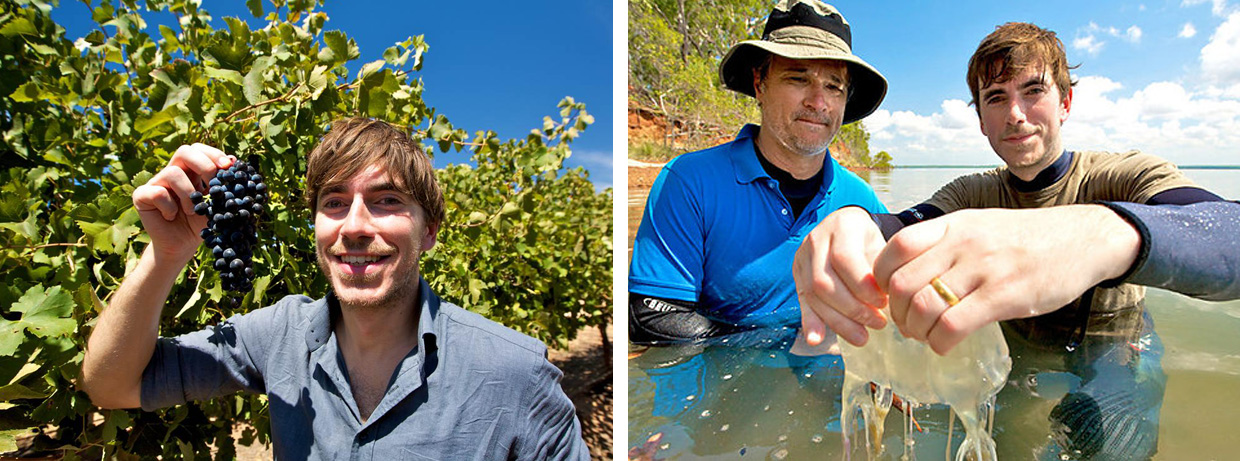
How do you come up with ideas for the documentaries you are involved in?
It starts with just a title in many a case, the Australia series wasn’t my idea but it was one I was very happy to say yes to. Generally the stuff I’ve done has been my idea and it involves looking at a map and thinking about parts of the world that we could wrap up into an exotic and appealing sounding adventure to get people watching. Although the BBC isn’t completely driven by ratings, obviously we do have to make sure at least a few people are going to watch other than my family! We think about the area and we think about the title, that’s very important when making TV programs, sickeningly so in fact. We also think about what we’ll actually be able to do in those places, although I’m slightly less worried about that aspect because I just know this is an extraordinary planet with seven billion people and an almost infinite number of incredible adventures and stories to tell. It’s a team process, I generally sit down with the guys I work with and we discuss the idea, for instance we might talk about what would happen if we went along the coast of Mozambique or across the middle of Australia etc. and we make sure that we’re not spending crazy amounts of money whilst doing it. I work with a small-ish pool of people, who’ve been willing to put up with me on the journeys. They’re quite intense journeys because you’re going away with people and you’re spending a month on the road eating breakfast, lunch and dinner together and sometimes shacking up together in a tiny mud hut somewhere. We have to go together in a team where everyone gets on, so that’s really key, but I’ve been very lucky with the people I work with. I work with some of the best directors, cameramen and assistant producers in the business.
Let’s talk for a moment about this fantastic new series, Australia, in which you delve into the politics, the issues and lifestyles of Australia as well as the environment. Do you think the country and it’s people matches the perception from the rest of the world?
I think Australia is a curious subject for us Brits because it seems we break down into two groups; one group is really fascinated by Australia and would love to live or work there and have friends and family there and other Brits just aren’t that keen on it. What we are trying to do with this series in some ways is counter that prejudice. So for those people who think there is not a lot to it, we try to show them a whole lot more and for those people who think of it as fascinating for surfing and BBQs we are trying to show them other aspects of life there because it is a fascinating, huge, complicating country. One side to the other is not far off from London to Bagdad and in that vastness there are an almost infinite number of adventures and expeditions in a range of landscapes and ecosystems that stand up against anywhere on planet earth. You’ve got tropical rainforests, vast open plains, deserts and beautiful hills covered in life. You’ve got snow-capped mountains that people can ski on, you’ve got the Great Barrier Reef and two of the great wilderness areas on planet earth in the Kimberley and Cape York so I say it’s also got a hell of a lot to offer adventurous travellers.
Did Australia challenge you or your thinking?
It was definitely a country I think I came to understand better during the course of the journey but I probably started out with many of the prejudices that many of us have. I grew up on Neighbours and Kylie and XXXX adverts and Crocodile Dundee and that creates a simple view of the country and some elements of it are true but there is also a lot more to it than that. I think the biggest single surprise for me about Australia was just how Asian it actually is. Connected with Asia economically, it is also very close to Asia geographically. Up in the north you are closer to Jakarta than you are to the Australian capital Canberra and the people of Australia are changing. More than 10% of Australians are Asian Australian and so the country is becoming both ethnically and culturally diverse. It’s also a very rich country, a lot of times travelling there I felt like the poor foreign cousin. So it was fascinating in many ways and honestly every single day something new and strange would happen that I hope to remember forever.
How do you keep it real, keep yourself in the moment and keep the journalism aspect alive while trying to avoid the trap of becoming a commercial travel show?
Well that’s not too hard in the sense that the department I generally work with at the BBC is the current affairs department. They’re real tough cookies that work in very difficult parts of the world but we’re all really keen to make programs that explain less well known parts of the planet to viewers who don’t always want to watch a full length documentary on child labour in Bangladesh. That’s just what I find, I’m not hugely interested in making a viewer travel show and I don’t really think there is a space for it in the TV schedule anymore because if you want to learn about a hotel in Kuala Lumpur you can just look it up on the internet. What we do is a blend of travel with history and current affairs and issues and stories on conservation and I think it’s proving pretty positive, I’m really pleased with it. People are so willing to watch a journey that incorporates all those elements. So it’s not too hard to try and include the stories because that’s what all of us who are involved with it want to do. Certainly there are times when it would be really nice to kick back in a luxury hotel and film the gold plated fillings in it but and I’d much rather get out and meet the locals and tell a story.
The freedom of exploration to an extent has been taking away from you… Do you ever get to do any of it solo, carrying your own camera, tent etc?
I don’t really work solo and I don’t really travel solo now I’ve got a wife and a son and I probably wouldn’t be trusted to go off alone. We’ve tended to do things which are me being filmed, even when we’re in a dangerous or difficult situation, obviously I’ve got everyone with me, but a very small team. I don’t have people carrying my bag, we’re working as a team and carrying kit between us and I really like that aspect of it, at least I do now, I might not like it so much if the arthritis kicks in.
From where we sit you are living the dream, is it all it’s cracked up to be?
I’d say it probably is! I’m very fortunate. I get to travel and that’s my job and I get paid to do it. I get to travel in a way that means I learn a lot as well. I’m not just sitting in an office in a far flung part of the planet I’m out exploring it, so I feel extremely privileged, I don’t forget that for a single day I’m on the road. I would encourage anyone to try and do the same or do something similar. Most of the stuff I do can be done by people, by other folk and travellers who are going under their own steam. I don’t deny that it’s not going to be super cheap to do in many cases, but you can work for it, save up and do much of it. Of course there are any number of opportunities to work and live and travel abroad now in a way that our ancestors could only have dreamt of. So take chances when you can, we live at an extraordinary moment of our species and we’re able to go on these incredible journeys that are life enhancing and fulfilling. I also think it’s important that people try and give a little back when they go abroad, so get away from the hotels and resorts and engage with locals and contribute to the communities that you’re in and that will really help you to have an incredibly memorable adventure.
You see more than most people what is happening to the world, the reality of global warming, the hunger, the incorrect stereotypes that some of the media push. How does this affect you, have you learned to just switch it off?
It affects me a lot and I’ve become a bit of an emotional wreck in many ways, so I start sobbing and blubbing over small things in life now. I’ve seen some pretty horrific sights around the planet and they don’t go away, they do pop up in my dreams and nightmares sometimes. I think how I’ve tried to deal with it is by perhaps selfishly using awful situations I’ve seen and been in to constantly remind myself how incredibly luckily I am and how utterly blessed we are. We’re part of a very fortunate few who live at a time where we can get clean water from the tap and any of us can go off on local and long journeys. That’s something to never forget. One of the aspects of my job that I struggle with is that we can end up in troubled places, film for a bit and go. It can become a hard thing to do because you want to make a tangible difference to people’s lives but that’s not really my job.
My job in a slightly parasitical way is to turn up, capture the situation and move on and I do have to leave it to other people to make the real difference, Yes there are stereotypes and yes there are desperate situations. The more we travel and the more we learn about our brothers and sisters on planet earth the more those barriers and prejudices break down and that is happening. We do live in a world where there is much more understanding than we give it credit for.
Who inspires you? Do you have a favourite explorer/adventurer?
That’s a tricky one. I think probably it was my grandmother. She was basically crippled by polio when she was a childand it was very hard for her to get around but she used to take my brother and I on magical mystery tours in her mobility car. When we were very young she would let us navigate, we would be able say left grandma, left grandma, left again grandma and ended up exploring our area and strange parts of London. It really did feel like we were exploring and it brings a lump to my throat remembering it, sadly she passed away 10 years ago.
What would you consider your most extreme experience within your presenting career? Would you consider any of your previous documentaries as expeditions?
Some of the journeys I have done are expeditions. Certainly elements of the bigger journeys have included some pretty hair raising experiences and expeditions, like crossing part of the Sahara when we’ve travelled around the Tropic of Cancer, going into Burma undercover and trekking in from India. In India we didn’t have a presenter trailer parked up nearby it was proper trekking, we had to carry everything on our backs and move quickly to avoid detection. I haven’t done a journey where we have gone up Everest backwards or anything like that but who knows maybe I’ll be lucky enough to have a chance.
I’m very fortunate. I get to travel and that’s my job, I get paid to do it, I get to travel in a way that means I learn a lot as well. I’m not just sitting in an office in a far flung part of the planet I’m out exploring it, so I feel extremely privileged, I don’t forget that for a single day I’m on the road. I would encourage anyone to try and do the same or do something similar.
